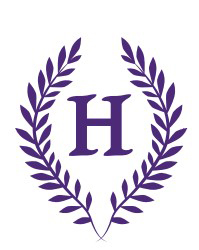French
Our French lead is Mrs A Fletcher.
French Intent, Implementation and Impact
INTENT
The aim of our MFL curriculum is to:
- Develop a positive attitude to language learning;
- Develop an understanding of cultural differences and appreciation of intercultural communication;
- Develop metacognition skills by learning how to learn a language so that this can be built upon in future learning;
- Understand basic terminology and make links between first and learned language, including developing their vocabulary, grammar, punctuation and phonetical awareness through speaking, listening, reading and writing.
Here at Heatherside Junior School we teach pupils the French language; lessons delivered are exciting and engaging to ensure that pupils enjoy the experience of learning a new language and we strive to stimulate and encourage pupil’s curiosity about language. Our MFL curriculum design is progressive; it develops children skills in languages, through regular taught lessons. Pupils are taught to use and apply a growing bank of vocabulary organised around topics.
We aim to engage children in learning language using a variety of learning approaches that inspire the children to use and engage with the language first, before learning to write it. Furthermore, we also take the opportunity to look at cultural similarities and differences and intend for our children to appreciate the traditions and characteristics of cultures around the world.
‘Learning a foreign language is a liberation from insularity and provides an opening to other cultures. A high-quality languages education should foster pupils’ curiosity and deepen their understanding of the world. The teaching should enable pupils to express their ideas and thoughts in another language and to understand and respond to its speakers, both in speech and in writing. It should also provide opportunities for them to communicate for practical purposes learn new ways of thinking and read great literature in the original language. Language teaching should provide the foundation for learning further languages, equipping pupils to study and work in other countries.’ National Curriculum
IMPLEMENTATION
French is taught during PPA time on a three-week rotation: each class has a French lesson on weeks one and two. Each French lesson lasts approximately 50 minutes. With a view to further embed the use of language across the school, we also encourage children to use French around the school and try to incorporate simple classroom phrases and admin tasks in French the school day.
Lessons usually begin with an opportunity to rehearse general greetings and/or numbers in French. This builds across the key stage as the children become more familiar with the language. The main focus or learning intention for the lesson then follows, with a variety of tasks that scaffold or support children’s learning. Children first learn to use the language through speaking and listening challenges, games, songs, videos and choral repetition. Pupils are encouraged to speak in sentences as much as possible, using familiar vocabulary, phrases and simple language structures. Across the key stage, they are encouraged to use accurate pronunciation and play games that encourage them to listen carefully to each other, in order to develop confidence in both speaking and listening in a foreign language. In upper Key Stage Two, we also develop children’s understanding of basic French grammar, including masculine and feminine forms and the conjugation of high-frequency verbs.
We use both incidental opportunities and planned lessons to develop children’s awareness and appreciation of different cultures. In year 6, children are given an opportunity to spend a term learning a different language, which is voted for by the year group each year.
Outcomes for each unit are varied and allow children to express themselves and their responses in a variety of ways. Where needed, tasks are adapted and scaffolds provided to support children working at a lower ability or with special educational needs. Challenge tasks are included to extend learning and allow children to deepen their understanding and knowledge.
IMPACT
Key assessment statements have been created for teach unit which are used to assess pupils in MFL. These summative assessments support the monitoring of pupils’ progress and attainments in MFL as they move though Key Stage 2, ensuring that pupils are supported and challenged where appropriate. Pupil voice is also used to further develop the MFL curriculum, through questioning of pupils’ views and attitudes to learning a language.
The children at Heatherside Junior School are confident, inquisitive language learners. They are keen to understand the roots of French (and other modern foreign languages) and will ask questions to clarify their understanding of what they are learning. They also frequently make comparisons between French and English and enjoy learning about cognates across the languages they study. Children can often be heard trying to use French around the school, for example when ordering their meal choices for lunchtime or greeting their teacher in the morning and are enthusiastic about continuing their language learning in key stage 3.
CONTRIBUTION TO SMSC AND BRITISH VALUES:
- Social - Development of social skills through communicating with others.
- Spiritual - Love of language and an appreciation of how diverse the world is.
- Cultural - Cross-cultural appreciation of art, music, literature, inventions and traditions.
- Tolerance and Mutual Respect - Learning another language helps foster an understanding of the challenges other people may face in learning a second language.
FIRST LANGUAGES IN OUR SCHOOL:

